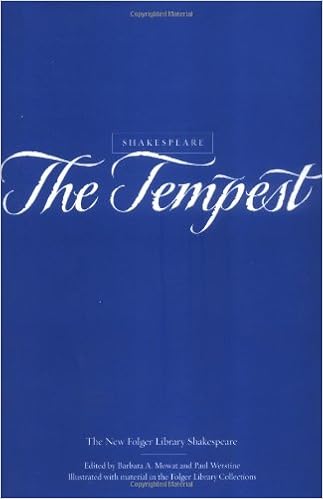
Description
The Folger Shakespeare Library in Washington, D.C., is home to the world’s largest collection of Shakespeare’s printed works and a magnet for Shakespeare scholars from around the globe. In addition to exhibitions open to the public throughout the year, the Folger Shakespeare Library offers a full calendar of performances and programs. For more information, visit Folger.edu. Barbara A. Mowat is Director of Research emerita at the Folger Shakespeare Library, Consulting Editor of Shakespeare Quarterly , and author of The Dramaturgy of Shakespeare's Romances and of essays on Shakespeare's plays and their editing. Paul Werstine is Professor of English at the Graduate School and at King's University College at the University of Western Ontario. He is general editor of the New Variorum Shakespeare and author of many papers and articles on the printing and editing of Shakespeare's plays.
Features & Highlights
- In
- The Tempest,
- long considered one of Shakespeare's most lyrical plays, Prospero -- a magician on an enchanted island -- punishes his enemies, brings happiness to his daughter, and comes to terms with human use of supernatural power.
- The Tempest
- embodies both seemingly timeless romance and the historically specific moment in which Europe begins to explore and conquer the New World. Its complexity of thought, its range of characters -- from the spirit Ariel and the monster Caliban to the beautiful Miranda and her prince Ferdinand -- its poetic beauty, and its exploration of difficult questions that still haunt us today make this play wonderfully compelling.
- THE NEW FOLGER
- LIBRARY SHAKESPEARE
- Designed to make Shakespeare's great plays available to all readers, the New Folger Library edition of Shakespeare's plays provides accurate texts in modern spelling and punctuation, as well as scene-by-scene action summaries, full explanatory notes, many pictures clarifying Shakespeare's language, and notes recording all significant departures from the early printed versions. Each play is prefaced by a brief introduction, by a guide to reading Shakespeare's language, and by accounts of his life and theater. Each play is followed by an annotated list of further readings and by a "Modern Perspective" written by an expert on that particular play.





